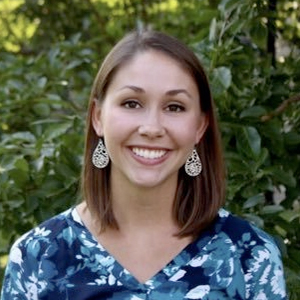Student chapter president’s hard work pays off
When Anna Fiedler is faced with a new challenge, such as hosting a regional research conference, she sees it as an opportunity to learn and grow. In fact, she thrives on paving the way to help others succeed.
 In addition to her love of science, Anna Fiedler has a passion for the Spanish language and culture, sparked when she was a child living in Beaumont, Texas. “If you drove down a street in my town, you would find a lot of people who didn’t speak English as a first language,” she said. Her study abroad experience in Spain and her Spanish language and culture classes have helped her communicate better with students from different backgrounds. COURTESY OF ANNA FIEDLER
In addition to her love of science, Anna Fiedler has a passion for the Spanish language and culture, sparked when she was a child living in Beaumont, Texas. “If you drove down a street in my town, you would find a lot of people who didn’t speak English as a first language,” she said. Her study abroad experience in Spain and her Spanish language and culture classes have helped her communicate better with students from different backgrounds. COURTESY OF ANNA FIEDLER
“Because I did something first, someone down the line can benefit from it,” she said.
Fiedler is a founding member of the American Society for Biochemistry and Molecular Biology Student Chapter at the University of Texas at Dallas. Noting her work ethic, her fellow members selected her in 2018 as chapter president. Under the previous president, the group had applied for the ASBMB Student Chapters Regional Meeting Award; with Fiedler at the helm, they used the funds to host a research conference for students from seven universities in Texas.
Planning the regional conference was a learning experience. To prepare, Fiedler and fellow chapter members reviewed student abstracts, advertised on campus and invited guest speakers. They also coordinated a career exploration panel with a faculty member, a chemistry graduate student and a medical school student to offer their perspectives about careers in science. Undergraduates can be intimidated by scientists, Fiedler noted, but the relaxed environment of the panel led to an open and honest conversation between the attendees and panelists.
She also had to deal with a few minor problems, such as running out of name tags and posters falling off the walls.
“You can’t always predict what will happen,” she said, “but you can learn how to have poise in those situations.”
The conference’s top three student presenters, including one from Fiedler’s chapter, won travel awards to attend the ASBMB annual meeting in Orlando, Florida. Fiedler also attended the annual meeting with the help of an ASBMB Student Chapter Travel Award and a local travel grant she received for her undergraduate research.
At one of the booths in Orlando, Fiedler, who aspires to a career in medicine, was thrilled to test a virtual reality headset that models anatomy dissections. During the meeting, she also presented her work testing properties of organic polypropylene mesh, specifically how E. coli interact with the mesh, resulting in oxidative degradation.
After she graduates from UT–Dallas in spring 2020, Fiedler hopes to attend medical school. She is excited to take on the challenge of working with patients to improve their quality of life.
“No one wants to have surgery done,” she said, “but you get to see such a radical difference in the patient’s life after surgery.”
Enjoy reading ASBMB Today?
Become a member to receive the print edition four times a year and the digital edition monthly.
Learn moreGet the latest from ASBMB Today
Enter your email address, and we’ll send you a weekly email with recent articles, interviews and more.
Latest in People
People highlights or most popular articles
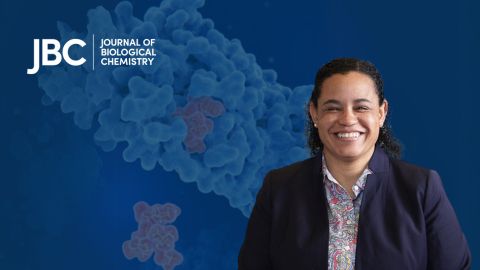
Meet Donita Brady
Donita Brady is an associate professor of cancer biology and an associate editor of the Journal of Biological Chemistry, who studies metalloallostery in cancer.
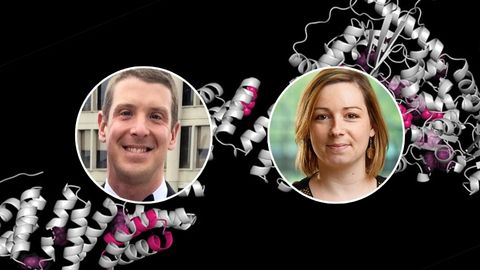
Glyco get-together exploring health and disease
Meet the co-chairs of the 2025 ASBMB meeting on O-GlcNAcylation to be held July 10–13, 2025, in Durham, North Carolina. Learn about the latest in the field and meet families affected by diseases associated with this pathway.
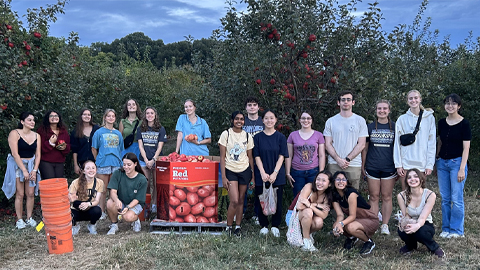
ASBMB recognizes 2025 outstanding student chapter
The Purdue group, led by Orla Hart, developed STEM outreach initiatives for low-income and minority students in Lafayette, Indiana.
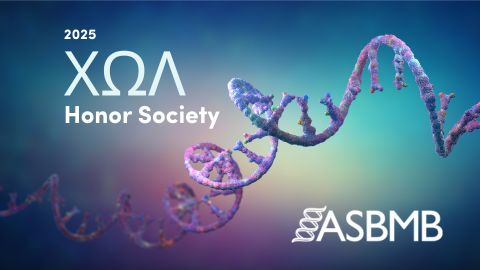
ASBMB inducts 2025 honor society members
Chi Omega Lambda, which recognizes exceptional juniors and seniors pursuing degrees in the molecular life sciences, has 16 new inductees in 2025.
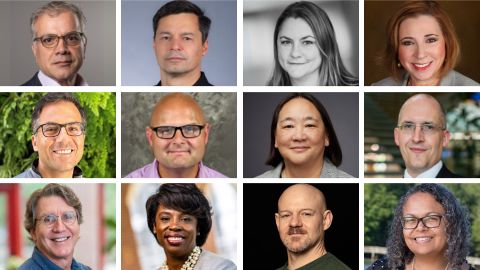
2025 voter guide
Learn about the candidates running for ASBMB President, Secretary, Councilor, Nominating Committee and Publications Committee.
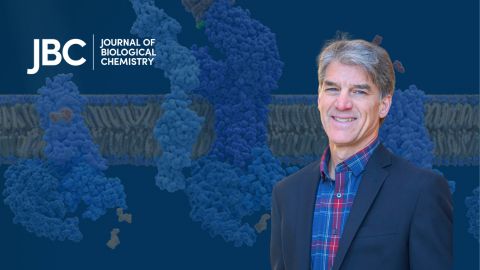
Meet Paul Shapiro
Learn how the JBC associate editor went from milking cows on a dairy farm to analyzing kinases in the lab.

